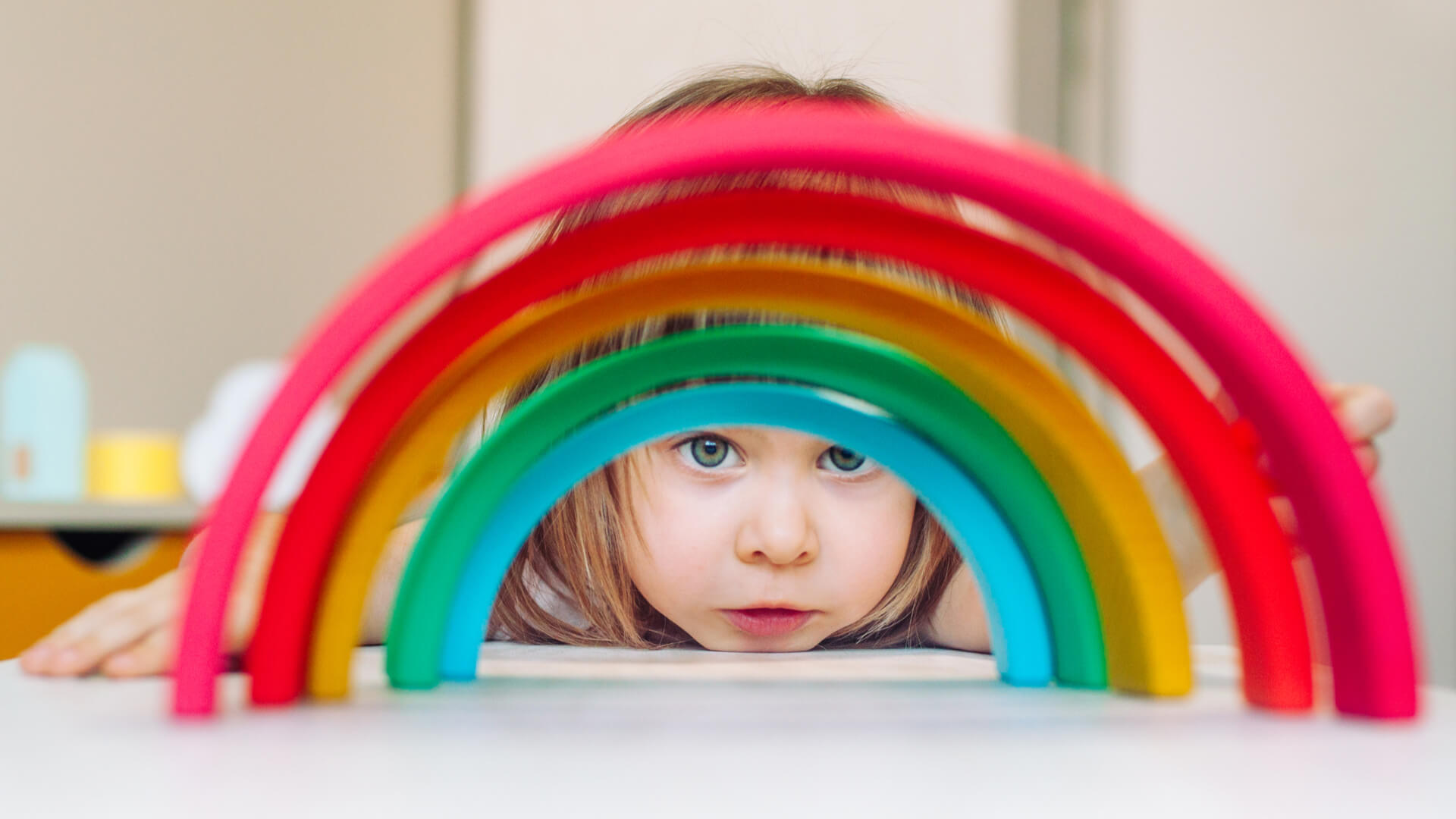Is Your Toddler’s Attention Span Typical?
Feb 8, 2022 Every parent or teacher knows firsthand that children’s attention spans differ. When planning activities or asking kids to do something, every parent and teacher wonders how long they’ll stay focused before they start to fidget, space out, or act out. In fact, being able to pay attention is a key skill for learning.
To be even more inclusive, the attention spans of neurotypical children can be much different than kids with ADHD or those on the Autism spectrum. This blog explores the attention spans of children to give some perspective on just how different kids can be.
In This Article
Conversely, Dr. Ralph Lewis at the Sunnybrook Health Sciences Centre in Toronto says, “Actually, people who are excessively focused (at the far right end of the attention span ‘bell curve’) have difficulties too. They tend to be finicky, obsessive, inflexible, and perfectionistic, and may tend to miss the big picture.”
So, it’s important to value where your child is now and enjoy their path.
General Rule of Thumb
Experts actually have a general rule of thumb for calculating the average attention spans of neurotypical children. Multiply 2-5 minutes times each year of the child’s age. The range covers the fact that again, EVERY child is different.
Childhood development experts generally say that a reasonable attention span to expect of a child is two to three minutes per year of their age. That’s the period of time for which a neurotypical child can maintain focus on a given task.
Average Attention Spans by Age
| Age | Attention Span Duration |
| 2 | 4–10 min. |
| 3 | 6–15 min. |
| 4 | 8–20 min. |
| 5 | 10–25 min. |
| 6 | 12–30 min. |
| 7 | 14–35 min. |
| 8 | 16–40 min. |
| 9 | 18–45 min. |
| 10 | 20–50 min. |
It’s worth noting that some developmental researchers put the upper limit at five minutes per year of a child’s age, meaning a 2-year-old could be able to focus on a task for up to 10 minutes at a time. Of course, these are only generalizations. How long a child is truly able to focus is largely determined by factors like:
- The number of noises or distractions nearby,
- How hungry or poor diet
- Where on the spectrum is their natural ability to be purposeful,
- How stressed they feel
- How tired the child is/the time of day
- Overall health of the child – it’s hard to concentrate if something aches/hurts
- How much passive screen time the child has had
- How much quality parental time they have had
- Having disorders/conditions or depression
- and how interested they are in the activity.
But if your child’s attention span is shorter than average, that’s worth addressing.
One way is to get proactive and engage your child in activities that improve their attention span. Here are a few strategies:
Extending a Child’s Attention Span
Here are few simple strategies that might help your child find greater focus:
- Use activities that engage the child creatively
- Make the task fun, if possible.
- Relate the task to something the child is interested in
- Try fidget spinners, a wide category of products that kids can manipulate while focusing on other tasks.
- Check-in frequently. Break tasks into smaller steps. Give rewards.
- Build in short movement breaks.
- Be physically nearby when giving instructions
- Practice concentration-building activities like puzzles, models, etc.
- Eat, drink, and use the restroom
- Praise positive behaviors
- Know when to ask for help
Autism Spectrum Disorder (ASD) and Attention Spans

Most kids with ASD have shorter attention spans than neurotypical kids. As a teacher, this is important information to have so that I can plan my lessons to take that into account. Any child that has trouble focusing gets bored and frustrated very quickly. This is no way to spend every day of a child’s school life! Learning through the lens of frustration accounts for issues in understanding, assimilating, and remembering the things we teach. But, this has other deeper issues, as well.
Confidence, the notion of self, and motivation will be less than they could be. According to Autism Parenting Magazine, “fewer than half of children and young people on the autism spectrum say they are happy at school, and five in 10 say that their teachers do not know how to support them.” We must do better for our children. Step one is to inform a child with ASD’s teacher so they can maximize their learning experiences. Then they can make lesson plans that help everyone.
ADD and ADHD

Kids with attention deficit disorder (ADD) or attention deficit hyperactivity disorder (ADHD) present combined symptoms of a short attention span, they can be impulsive, and sometimes even hyperactive. However, not all children with ADHD are hyperactive. Also, boys tend to be born with this biological condition more than girls.
The website from the doctors at Columbia University is an amazing resource about this. On their page, they define the disorder, give the symptoms and three types, talk more specifically about hyperactivity, and talk about its diagnosis and treatment. We highly recommend checking their page out.
With respect to attention spans, they say:
Elementary school children may have other symptoms besides being unable to focus, such as:
- acting without thinking things through
- emotional volatility
- difficulty keeping track of things like homework and books
- difficulty planning
- inability to finish homework or chores
- low threshold for frustration
- problems with sharing, taking turns, and letting others talk
- prone to accidents
- trouble making good decisions
People differ in how naturally focused they are and in their ability to sustain this kind of motivation. Like all traits, there is a spectrum of attention span in the general population: some of us just naturally have a longer attention span, and some of us naturally have a shorter attention span. Like most traits, this is partly determined by our genes. The biology of this issue is fascinating and a growing field of research that demands our attention.
Screen Time
A recent article on Slate quoted UNICEF as saying the “negative effects of screen time for babies and toddlers range from shorter attention span to lower empathy.” The research is evolving on this very rapidly, due in part to the COVID-19 pandemic and the corresponding increase in screen use. We promise to keep an eye on how to increase attention spans in kids and will update accordingly.
Boost Your Child’s Speech Development!
Improve language & communication skills with fun learning!

Hang in There
Parents, hang in there. There are a lot of resources online to give you ideas on how to help your child through this time. Don’t forget to ask a speech-language pathologist if you need more immediate feedback!


